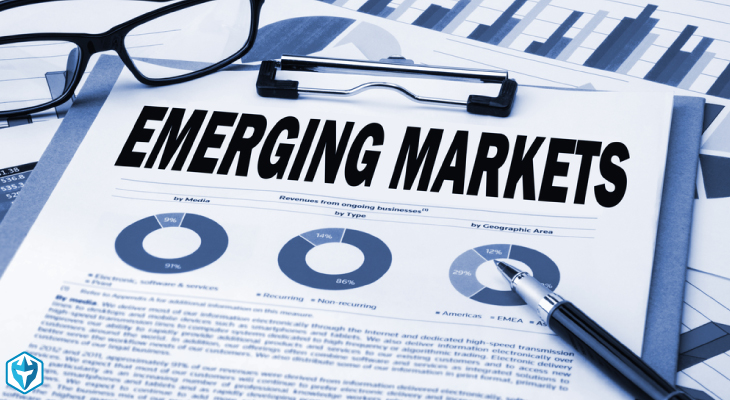An emerging market is a national economy that is in the process of becoming an advanced capitalist economy, but whose institutions are not yet fully developed.
Contemporary Emerging Markets
Depending on the classifying body, there are approximately 20-25 current emerging markets spread around the globe.
There are currently 16 national economies that are considered emerging markets by all major classifying bodies. Emerging markets 2018 include Brazil, China, Chile, Colombia, Indonesia, Hungary, India, Malaysia, Peru, Philippines, Mexico, Poland, Russia, Thailand, South Africa and Turkey.
While these countries all share similar features with respect to nascent free market institutions, their political, social and economic circumstances are also extremely varied.
While these bodies have varying interpretations of what constitutes an emerging market, characteristics of emerging markets are defined by the feature of development in free markets and their supporting institutions, such as regulators, accounting practices, exchanges and so on.
This is in contrast to both already developed economies and to ‘frontier’ economies, which only have rudimentary market institutions if any at all.
The adoption of these modern institutions generally leads to rapid economic growth, which is why investors are so keen to classify emerging markets in their own separate category.
Emerging Markets and Trading
Emerging markets tend to offer high returns on investments across a range of asset classes. However, the high potential returns from emerging market investments are matched by higher rates of risk, as the free market institutions in these countries are often still weak and fragile.
Furthermore, emerging markets are usually small, open economies, which means that they are particularly exposed to global economic downturns and crises.
Day traders often find emerging market assets particularly attractive, as they offer the kind of high volatility environment in which day trading strategies excel.
Furthermore, the low exposure time of most day trading strategies means that day traders are much less exposed to the periodic downturns for which emerging markets are well-known.
However, day traders will find that trading in emerging markets involves much less information and more judgment calls on the reliability of the information available, which is quite a different trading environment than what many are accustomed to from trading the assets of advanced capitalist economies.
Day traders who are looking to begin trading in emerging markets should take the time to become accustomed to the various differences involved.
Furthermore, they should be aware that each emerging market is unique, and needs to be researched separately before trading in its assets. Finally, emerging markets are prone to social and political upheavals, so day traders need to keep abreast of changing circumstances in the emerging markets that they trade in.
Final Thoughts
Emerging markets represent a wide range of trading opportunities that are well-suited to day trading strategies.
However, day traders need to be aware that the trading environment in emerging markets can differ substantially from what they are accustomed to in developed national economies.
Furthermore, day traders need to remember that each emerging market will have different key features, and they need to be researched individually before being traded in.


